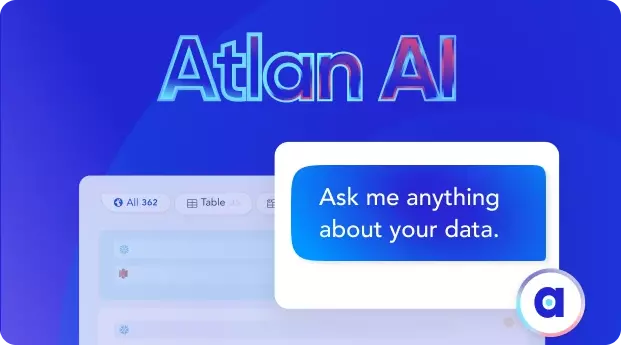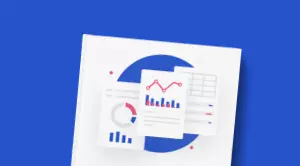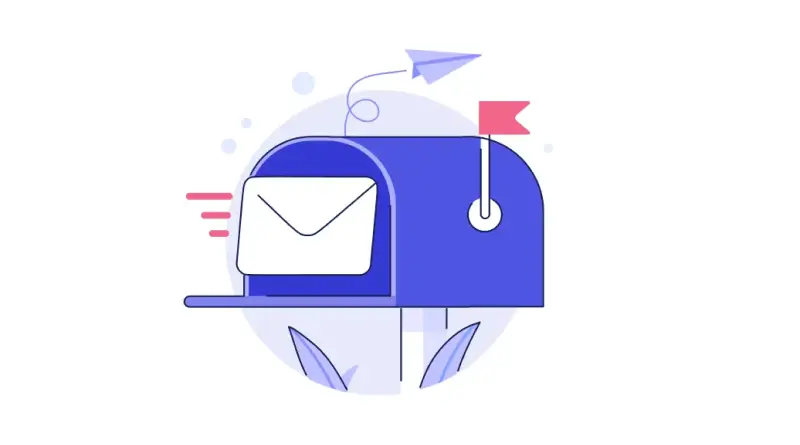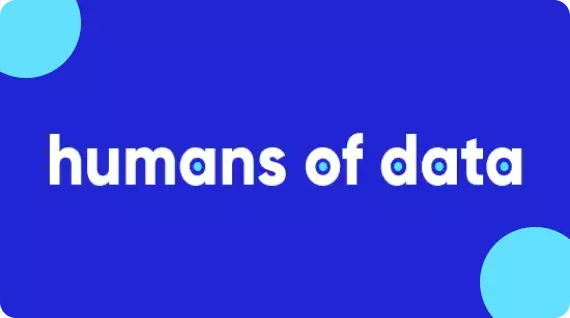7 Use Cases of Data Analytics in Hospitality Industry in 2024
Share this article
Data analytics in the hospitality industry has emerged as a critical tool for success. As the industry grapples with increased competition and the ever-evolving demands of customers, relying on traditional methods alone no longer suffices.
By understanding customer behavior, preferences, and patterns through data analytics, hotels and hospitality businesses can personalize their offerings, improve service quality, enhance operational efficiency, and maximize revenue.
See How Atlan Simplifies Data Governance – Start Product Tour
Understanding and effectively implementing data analytics can make the difference between standing out or being left behind in this highly competitive industry.
So, let’s go!
Table of contents #
- What is big data analytics in the hospitality sector?
- The importance
- Types
- How is data analytics used in hospitality industry?
- 6 Big challenges
- 6 Key reasons why data governance is important in the hospitality industry
- Summarizing it all together
- Related reads
What is big data analytics in the hospitality sector? #
In today’s data-driven landscape, big data analytics plays a pivotal role in the hospitality sector. It involves the systematic analysis of extensive and diverse datasets, often collected from various sources within the industry, to extract valuable insights and inform strategic decisions.
The power of data science in the hospitality sector is multifaceted - it impacts areas such as business operations, marketing, occupancy rates, and food and beverage sales.
Harnessing the power of big data analytics gives hotels and restaurants the tools to enhance guest experience, from personalizing room preferences to suggesting local events or culinary choices based on past preferences.
By providing these personalized experiences, businesses can build stronger relationships with their customers, encouraging repeat visits and enhancing brand loyalty.
In short, data analytics is a key driver of success in the modern hospitality industry. Businesses that understand and leverage the power of big data analytics will be better positioned to meet customer expectations, improve operations, and outshine the competition.
The importance of data analytics in the hospitality industry: 10 Reasons why it matters #
Here’s a detailed breakdown of the key ways data analytics is impacting and transforming the hospitality industry:
- Personalized guest experience
- Optimized pricing
- Improved marketing efforts
- Operational efficiency
- Forecasting and strategic planning
- Enhanced food and beverage sales
- Reputation management
- Competitor analysis
- Risk management
- Sustainability initiatives
Let us understand each of them in a bit detail:
1. Personalized guest experience #
By collecting and analyzing data on guest preferences and behaviors, hospitality businesses can provide a highly personalized experience to their guests. This might include preferred room type, dietary preferences, preferred activities, and more. Such personalization not only increases guest satisfaction but also fosters loyalty.
2. Optimized pricing #
Data analytics can help businesses with yield management, adjusting prices based on factors like demand, competitor pricing, local events, and historical data. This can help maximize revenue, particularly during peak periods.
3. Improved marketing efforts #
Big data analytics can help identify key market segments and understand their behaviors and preferences. This allows for targeted marketing campaigns, increasing the return on marketing spend.
4. Operational efficiency #
Data analytics can help identify inefficiencies in various aspects of the operation, from housekeeping to food service. By addressing these inefficiencies, businesses can improve their service while reducing costs.
5. Forecasting and strategic planning #
Using historical data, businesses can forecast future demand, helping with strategic planning. This might include staffing needs, inventory management, and capital improvements.
6. Enhanced food and beverage sales #
By analyzing purchasing trends and preferences, businesses can optimize their food and beverage offerings. This could lead to increased sales and reduced waste.
7. Reputation management #
Online reviews and social media feedback are a gold mine of data. By analyzing this data, businesses can identify common complaints or praise and take steps to improve their service.
8. Competitor analysis #
Data analytics isn’t just for analyzing your own business. It can also be used to understand competitors’ strategies and performance, helping businesses stay competitive in a crowded market.
9. Risk management #
With the help of data analytics, potential risks and crises can be anticipated and mitigated. This ranges from managing overbookings to anticipating larger industry trends or potential downturns.
10. Sustainability initiatives #
Data can also guide businesses in their sustainability efforts, helping them understand where they can reduce waste, conserve energy, and make other eco-friendly improvements. This not only reduces costs but also appeals to environmentally-conscious guests.
Overall, data analytics presents a multitude of opportunities for the hospitality industry to improve their service, increase efficiency, and stay competitive.
Types of data analytics in the hospitality industry: Exploring them in detail #
Data analytics in the hospitality industry can be categorized into several types, each serving unique purposes and providing different insights. Here are the key types of data analytics used:
- Descriptive analytics
- Diagnostic analytics
- Predictive analytics
- Prescriptive analytics
- Real-time analytics
- Sentiment analysis
Let us understand each of the above data types in brief:
1. Descriptive analytics #
This is the most basic form of data analytics. It involves analyzing historical data to understand what has happened in the past.
For instance, descriptive analytics can tell you how many guests stayed at your hotel last month, the average duration of stay, or the most popular menu item in your restaurant.
2. Diagnostic analytics #
This type of analytics is used to understand why something happened. By analyzing detailed datasets, you can find patterns and correlations that explain past events.
For example, if there was a sudden drop in your hotel bookings, diagnostic analytics might reveal that it was due to negative online reviews or a local event that impacted travel.
3. Predictive analytics #
Predictive analytics uses statistical techniques and machine learning algorithms to analyze historical data and predict future events. In the hospitality industry, this can be used to forecast demand, allowing for optimized pricing and better resource allocation.
For example, predictive analytics can tell you when the peak periods for your hotel will be, allowing you to adjust prices and staffing levels accordingly.
4. Prescriptive analytics #
This is the most advanced form of analytics, providing recommendations on the best course of action to achieve a particular objective. It takes into account various scenarios and possibilities, leveraging optimization and simulation algorithms.
In a hotel scenario, prescriptive analytics might recommend specific marketing strategies to target a new customer segment or suggest changes in room pricing to maximize revenue.
5. Real-time analytics #
This type of analytics involves analyzing data as soon as it comes into the system, allowing businesses to respond quickly to changing situations.
For instance, real-time analytics can be used in a hotel to alert staff when a room is ready for cleaning, based on data from keycard use.
6. Sentiment analysis #
This is a form of data analytics that focuses on understanding emotions and opinions expressed in online reviews and social media posts.
This can provide valuable insights into how guests perceive your hospitality business, and where improvements may be needed.
Each of these types of data analytics serves different purposes but, when used together, they provide a comprehensive view of the business, enabling better decision-making and strategy planning.
How is data analytics used in hospitality industry? Discovering newer paradigms #
Data analytics has become a key driver of success in the hospitality industry. The immense amount of data generated in this sector offers a goldmine of insights for businesses that can effectively harness it.
As the industry becomes more competitive, and as customer expectations continue to evolve, the use of big data analytics and data science becomes not just a strategic advantage, but a necessity.
By leveraging data analytics, businesses can uncover patterns, predict trends, optimize operations, and deliver personalized experiences that keep customers coming back.
In the hospitality industry, data analytics finds application in numerous areas, providing actionable insights and empowering businesses to make more informed decisions. Here are some of the best use cases:
- Personalization
- Dynamic pricing
- Predictive maintenance
- Demand forecasting
- Customer feedback analysis
- Competitor analysis
- Targeted marketing
Let us understand these use cases in brief:
1. Personalization #
In the hospitality industry, providing personalized experiences can greatly enhance customer satisfaction.
- Data analytics helps gather detailed customer profiles, including their likes, dislikes, preferences, and behavioral patterns.
- This can include their room preferences, dietary/travel needs, activity preferences, etc.
- Using this data, businesses can tailor their services to individual guests, even anticipating their needs before they express them.
This level of personalization can lead to increased customer loyalty and higher rates of return visits.
2. Dynamic pricing #
Data analytics in the hospitality industry can help businesses with yield management, which involves adjusting prices based on a multitude of factors such as demand, competitor pricing, local events, and historical data.
Historical data on occupancy rates and room prices, along with external data such as local events, weather, and market trends, can help predict periods of high and low demand.
Prices can then be adjusted in real-time to maximize revenue during peak periods and encourage bookings during off-peak times.
3. Predictive maintenance #
Predictive maintenance uses data from equipment sensors, maintenance logs, and other sources to predict when equipment or infrastructure might fail.
This allows for proactive maintenance, which can prevent costly downtime and unexpected issues. In a hotel, this could apply to anything from HVAC systems to kitchen appliances, potentially saving significant time and money.
4. Demand forecasting #
By analyzing historical data and considering external factors like events, seasonality, and market trends, data analytics can help predict future demand.
This information is crucial for effective resource planning, including staffing levels, inventory management, and capacity planning. Research shows that hotels that leverage data analytics for demand forecasting can achieve a 5-10% improvement in revenue and a 15-20% reduction in operating costs.
5. Customer feedback analysis #
Sentiment analysis tools can be used to analyze customer reviews, social media comments, and other feedback, providing insights into how customers perceive the business.
This can highlight areas for improvement, as well as areas of strength. Prompt responses to customer feedback can also enhance the business’s reputation for customer service.
6. Competitor analysis #
Data analytics in the hospitality industry isn’t limited to analyzing your own business. It can also be used to gain insights into competitors’ strategies and performance.
This allows businesses to stay competitive, identify gaps in the market, and adapt to changing industry trends.
7. Targeted marketing #
With detailed customer profiles and segmentation, businesses can design more effective marketing campaigns that resonate with their target audience.
This could include personalized email campaigns, targeted ads, and special offers for specific customer segments. Such targeted marketing efforts can lead to higher conversion rates and a better return on marketing spend.
These use cases demonstrate the transformative potential of data analytics in the hospitality industry. By leveraging data effectively, businesses can gain a competitive edge, improve operations, and enhance customer satisfaction.
The transformative power of data analytics and data science is redefining what’s possible in hospitality, providing a roadmap for future success.
6 Big challenges in implementing data analytics in the hospitality industry #
While data analytics holds tremendous potential for the hospitality industry, it also presents its own set of challenges.
Implementing big data analytics is not just about collecting data and running it through analytical tools; it involves a complex set of processes that require skilled personnel, advanced technologies, and a deep understanding of both data science and the hospitality industry itself.
Overcoming these challenges is key to harnessing the full power of data analytics.
- Data privacy and security
- Data quality
- Lack of skilled personnel
- Integration of data sources
- Cost of implementation
- Cultural resistance
Let us understand each of them in a bit detail:
1. Data privacy and security #
One of the primary concerns in dealing with customer data is ensuring its privacy and security. With cyber threats on the rise, safeguarding sensitive customer information is crucial.
In addition, companies must also comply with various data protection regulations which vary across different countries.
2. Data quality #
For data analytics to provide accurate and valuable insights, the quality of data being analyzed is paramount. Incomplete, outdated, or incorrect data can lead to misleading results. Cleaning and maintaining the quality of data is a significant challenge.
3. Lack of skilled personnel #
Data science is a specialized field that requires a specific skill set, including knowledge of statistical analysis, machine learning algorithms, data visualization, and programming languages like Python or R.
Finding personnel with these skills, along with a deep understanding of the hospitality industry, can be difficult.
4. Integration of data sources #
In the hospitality industry, data can come from various sources such as booking systems, customer reviews, social media, point-of-sale systems, and more.
Integrating data from these disparate sources into a coherent system for analysis can be complex and challenging.
5. Cost of implementation #
Implementing a comprehensive data analytics system can be expensive.
It requires investment in the right technology and tools, hiring skilled personnel, and potentially training existing staff. Smaller businesses may find the cost of entry high.
6. Cultural resistance #
The shift towards a data-driven decision-making process can be a significant change for many organizations.
Overcoming resistance to this change, and building a culture that values and understands the importance of data analytics, can be a significant challenge.
Despite these challenges, the potential benefits of implementing big data analytics in the hospitality industry make it a worthwhile endeavor.
With the right approach, businesses can overcome these hurdles and successfully leverage the power of data science to improve their operations, enhance customer experiences, and gain a competitive edge.
6 Key reasons why data governance is important in the hospitality industry #
Data governance is the overall management of the availability, usability, integrity, and security of data used in an enterprise. In the hospitality industry, where vast amounts of data are collected and analyzed daily, robust data governance is of paramount importance.
- Data quality and consistency
- Regulatory compliance
- Data security
- Privacy and trust
- Efficiency and productivity
- Data monetization
Certainly, let’s delve deeper into the role of data governance in the hospitality industry:
1. Data quality and consistency #
In the hospitality industry, decisions need to be made swiftly and accurately, whether it’s regarding pricing, inventory, or customer service. The accuracy of these decisions heavily depends on the quality and consistency of the data at hand.
Data governance involves establishing standards and protocols for data collection, storage, and usage across all platforms and departments.
It ensures that the data used is clean, relevant, and up-to-date, which in turn leads to more reliable insights and more informed decision-making.
2. Regulatory compliance #
The hospitality industry often deals with personal information of customers such as their names, addresses, and payment details. Regulations like the General Data Protection Regulation (GDPR) in Europe and the California Consumer Privacy Act (CCPA) in the US have strict guidelines for handling such data.
Data governance ensures that businesses are aware of and adhere to these guidelines, avoiding potential legal ramifications such as fines, penalties, and damage to the company’s reputation.
3. Data security #
Data breaches can lead to enormous financial losses and lasting damage to a brand’s reputation. Data governance policies provide a framework for protecting data from potential security threats.
They define who has access to what data, what they can do with it, and how it is protected. They also establish protocols for regular security audits, data encryption, and incident response, mitigating the risk of data breaches.
4. Privacy and trust #
In an age where data privacy is a growing concern, customers are more likely to do business with companies they trust to handle their data responsibly.
Transparent and ethical data governance practices can significantly enhance customers’ trust, encouraging them to share more data which can then be leveraged for personalized services, improving customer satisfaction and loyalty.
5. Efficiency and productivity #
Proper data governance ensures that data is easily accessible, well-organized, and clearly defined, reducing the time employees spend looking for information or dealing with data-related issues. This increases overall operational efficiency and productivity.
6. Data monetization #
Effective data governance allows businesses to fully utilize their data, generating more value from it. This could involve using data insights to optimize operations, improve services, or even create new revenue streams, such as offering personalized experiences based on customer data.
In a nutshell, robust data governance in the hospitality industry ensures data quality, consistency, and security. It facilitates regulatory compliance, builds customer trust, boosts operational efficiency, and enables businesses to extract more value from their data. As such, it forms a critical component of any data strategy.
Summarizing it all together #
Data analytics is crucial in the evolving hospitality industry, helping businesses enhance personalization, implement dynamic pricing, perform predictive maintenance, forecast demand, analyze customer feedback, conduct competitor analysis, and design targeted marketing strategies.
However, implementing data analytics comes with challenges such as ensuring data privacy and security, maintaining data quality, finding skilled personnel, integrating various data sources, managing implementation costs, and overcoming cultural resistance.
Nonetheless, the power of big data analytics in transforming the hospitality industry by improving operations, and customer experiences, and gaining a competitive edge makes it a pivotal tool despite the challenges. Businesses willing to invest in data science and tackle these obstacles can derive significant benefits.
Data analytics in hospitality industry : Related reads #
- Predictive Data Quality: What is It & How to Go About It
- 7 Critical Data Analysis Methods: The Analyst’s Playbook!
- Data Analytics in Travel Industry: A 2024 Guide
- Data Governance Framework — Examples, Templates, Best Practices & How to Create a Data Governance Framework?
- 11 Benefits of Data Visualization You Can’t Ignore in 2024
- Data Governance and GDPR: A Comprehensive Guide to Achieving Regulatory Compliance
- The Benefits of GDPR Compliance and Data Governance: Protecting Your Data and Your Business
- Data Quality Measures: Best Practices to Implement
- Data Privacy vs Data Security: How & Why They Aren’t Same?
Share this article









